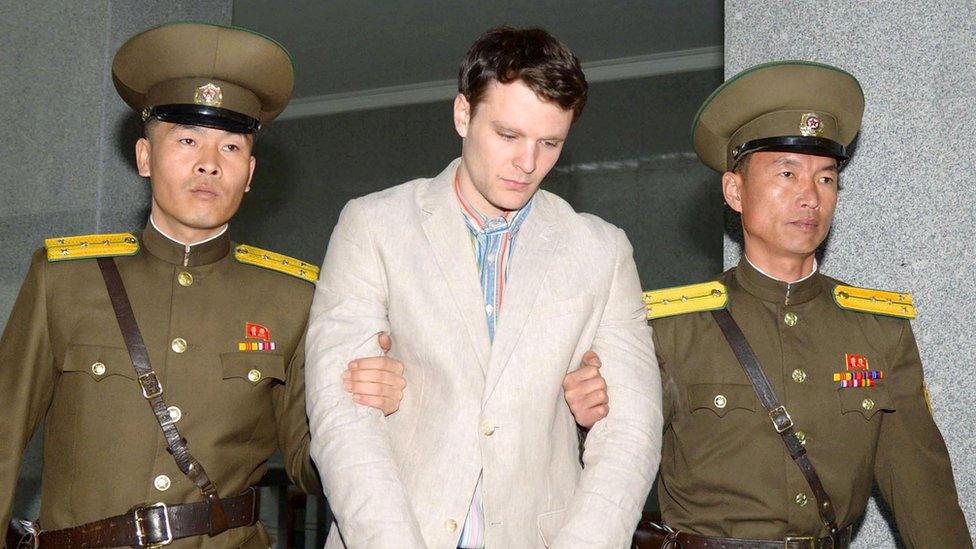Travis King: US soldier is absent without leave in North Korea, Pentagon says
- Published
Watch: What's next for captured US soldier in North Korea
The Pentagon says it considers army private Travis King to be "absent without leave" in North Korea after he crossed the border during a tour.
Officials also admitted they had no idea of his condition or where he was being held.
Earlier the White House said the US had tried to contact Pyongyang through "multiple channels" but had had no response.
PV2 King dashed across the heavily fortified border area on Tuesday.
It is unclear if he has defected or hopes to return.
The Washington-based news website the Messenger said it had seen an internal US government report which described PV2 King's actions when he crossed the border.
It quoted the report as saying PV2 King sprinted up to a building on the North Korean side.
He is said to have banged vigorously on the door, and when there was no answer, he ran around the back and got into a van. He was then immediately driven off, according to the website.
Experts say such a low-ranking soldier would have little propaganda and intelligence value, which may prompt North Korea into releasing him - but what will happen to him remains highly uncertain.
Christine Wormuth, head of the US Army, has expressed "deep concern" for PV2 King and how he may be treated.
She told the Aspen Security Forum: "I worry about him, frankly."
The crisis comes during a particularly tense time with the North. Relations with the US have plummeted in recent years, as it has tested dozens of increasingly powerful missiles capable of carrying nuclear warheads.
On its travel advisory, external, the US tells its citizens not to travel to North Korea - one of the world's most isolated states - due to "the continuing serious risk of arrest" and the "critical threat of wrongful detention".
Watch: Travis King's mother speaks about her son in North Korea
PV2 King had been due to fly back to the US from South Korea, where he was based, to face disciplinary action.
But the 23-year-old did not board the plane when he parted ways with his military escorts at Incheon Airport near Seoul on Tuesday and instead embarked on an apparently pre-booked tour to the border - the details of how he managed to do that are still unclear.
The demilitarised zone (DMZ) at the border has separated the two countries since the Korean War in the 1950s, in which the US backed the South.
The war ended with an armistice, meaning that the two sides are still technically at war. Tens of thousands of US troops remain in the South.
As the US and North Korea do not have diplomatic relations, the Swedish embassy in Pyongyang tends to negotiate on behalf of the US. Currently its diplomatic staff are not in the country, because of the ongoing border closure since the pandemic.
Both the UN Command, that runs the border area, and the South Korean military have direct phone lines to the North Korean military, that they call daily to check in, though the North Koreans do not always pick up.
In recent years, a number of American citizens who illegally entered North Korea - excluding those convicted of criminal activity there - have been released within six months.
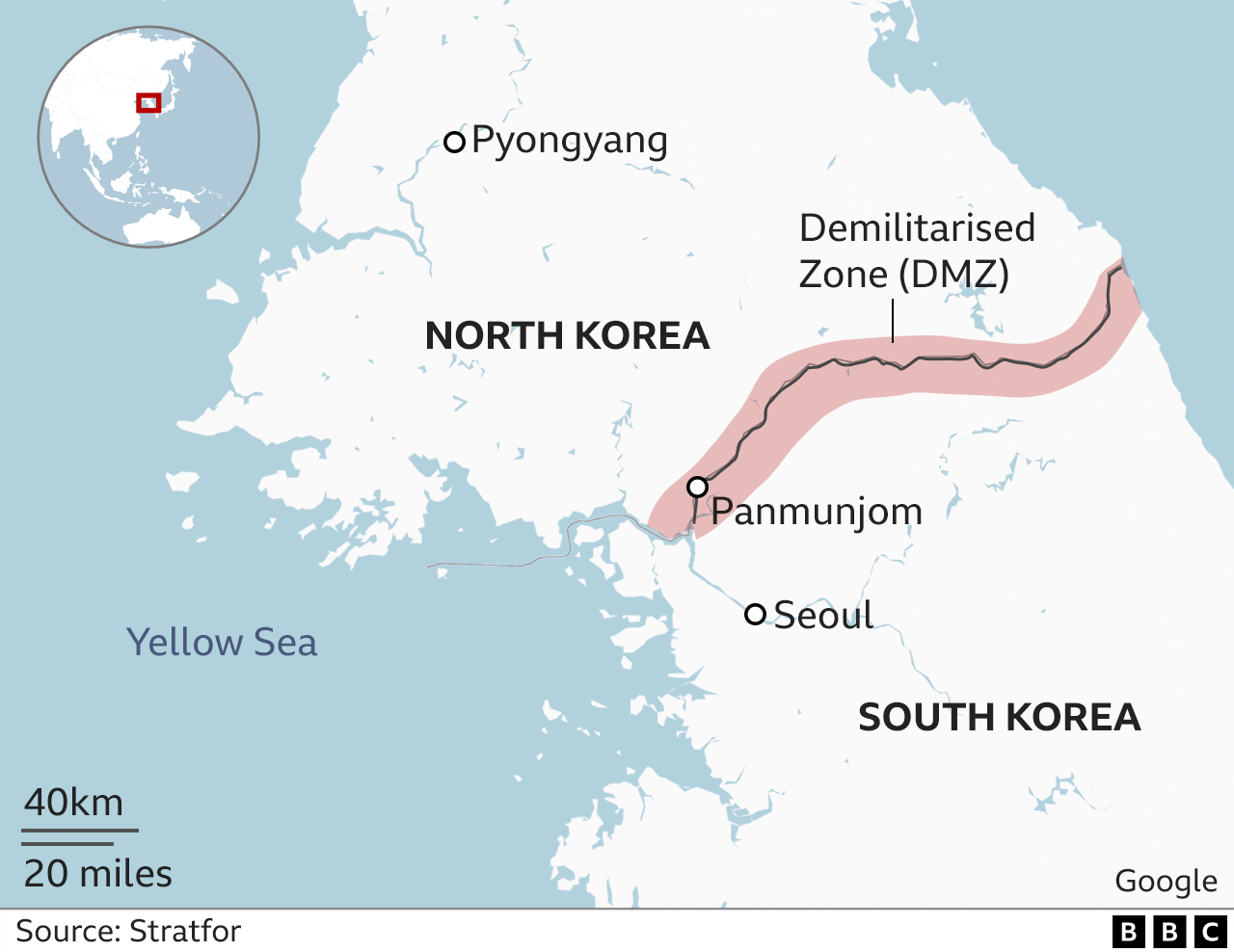
Pyongyang could use PV2 King as a propaganda tool to criticise the US military, said James Fretwell, an analyst at Seoul-based specialist site NK News.
"King may well show up in North Korean state media at some point in the near future. But a lot depends on how long his interrogation, and maybe his Covid-19 quarantine, lasts," he added. North Korea still maintains a strict border lockdown in response to the pandemic.
But Jenny Town, director of the Stimson Center's 38 North Program, believes Mr King "does not make for a very ideal or compelling soldier story".
"There have also been cases long ago of US soldiers who defected and were allowed to stay… But in those cases, there was political value to [their stories] and it was a very different time, and a different leader," she said.
Some experts feel that the tensions between North Korea and the US and the impasse in bilateral talks means the North has little to gain in holding on to PV2 King.
"For Pyongyang, it makes sense to find a way of extracting some compensation and then expel an American for unauthorised entry," said Leif-Eric Easley, a professor of international studies at Ewha Womans University in Seoul.
"In the best-case scenario, the American soldier will return home safely at the cost of some propaganda victory for Pyongyang, and US and North Korean officials may have an opportunity to resume dialogue and contacts that went stagnant during the pandemic."
- Published27 September 2023
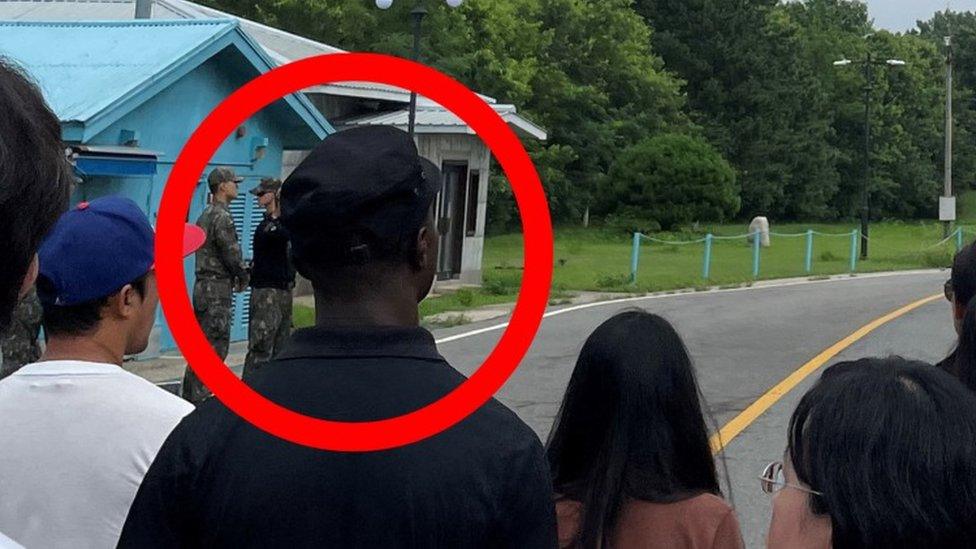
- Published19 July 2023
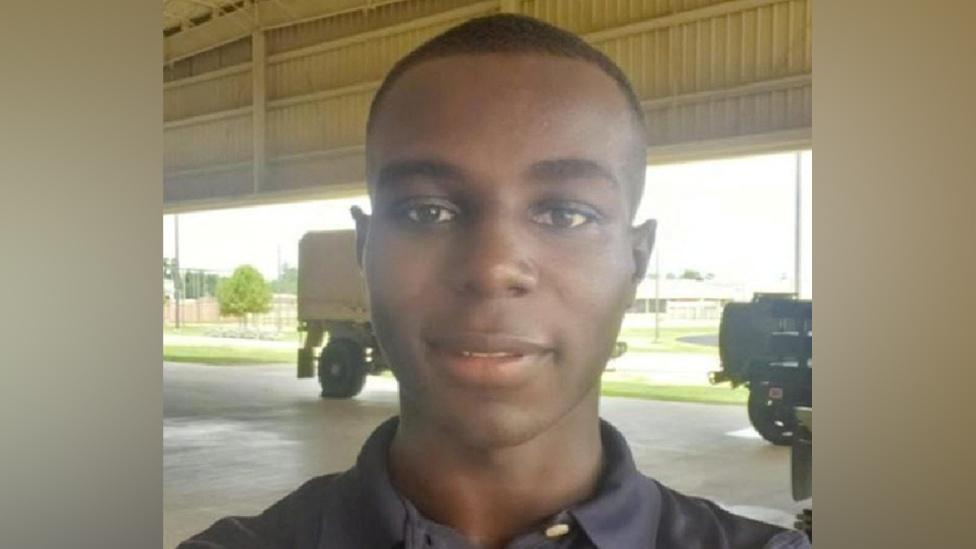
- Published27 September 2017
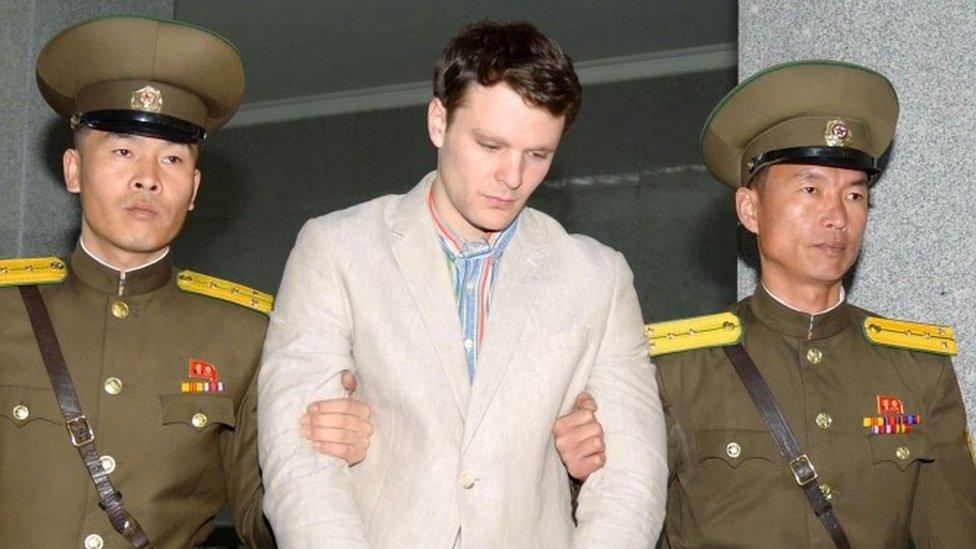
- Published14 June 2017
